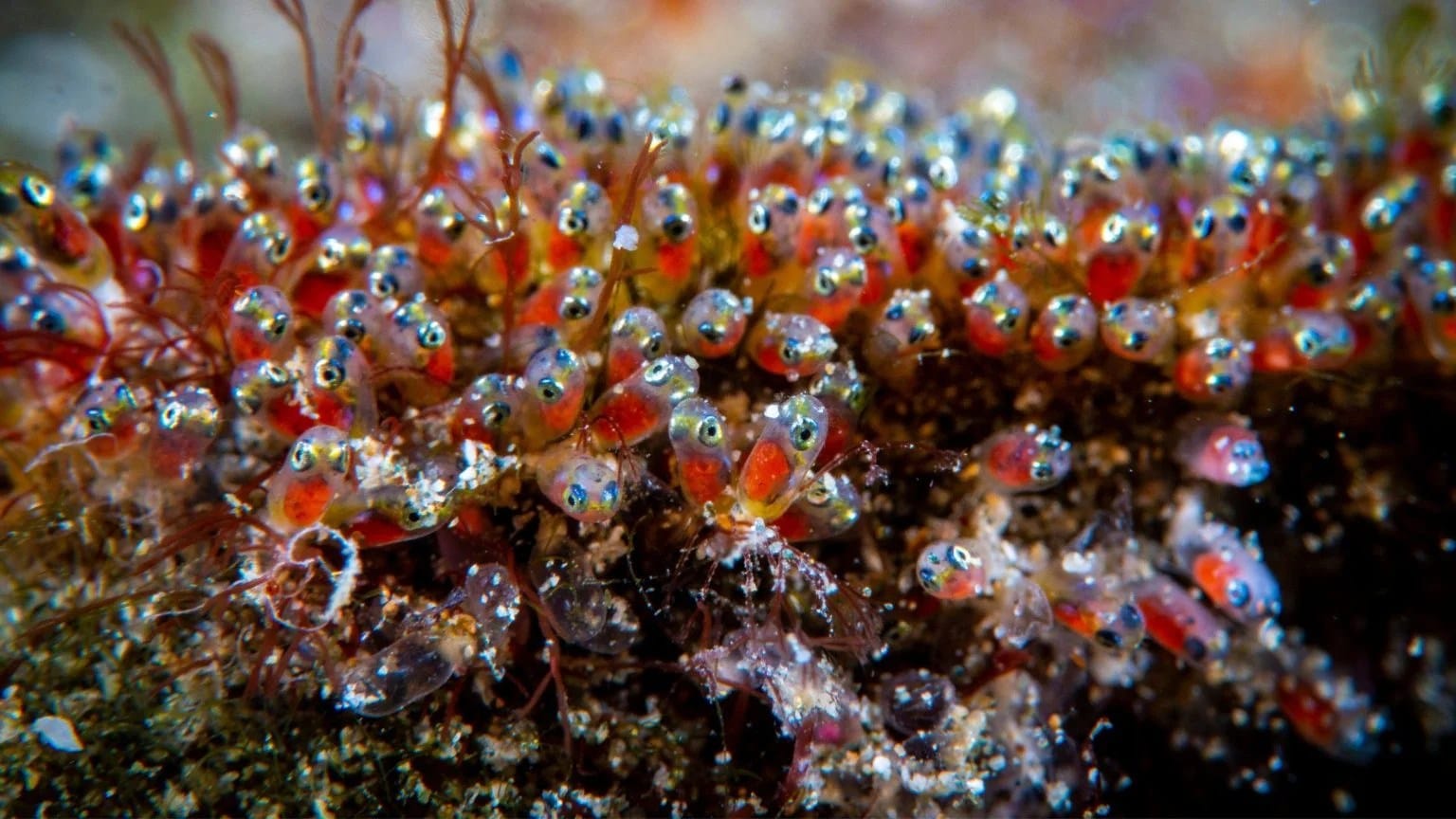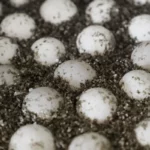The beloved clownfish, made famous by the film *Finding Nemo*, evokes images of dedicated parenting. But beneath the surface lies a more complex reality. While not a regular occurrence, clownfish sometimes exhibit a surprising behavior: they eat their own eggs. This article delves into the science behind this seemingly counterintuitive act, exploring the reasons why clownfish might engage in filial cannibalism and what aquarists can do to encourage successful breeding.
Why Would a Clownfish Eat Its Eggs?
While seemingly cruel, clownfish egg consumption usually isn’t a sign of bad parenting. In fact, it’s often a survival strategy employed for several reasons. Do Cockroaches Poop? just like other creatures, clownfish exhibit interesting behaviours relating to their offspring.
Quality Control
Male clownfish, the primary caregivers, meticulously inspect and cull eggs that are unfertilized, damaged, diseased, or affected by fungal growth. This quality control prevents the spread of infection to healthy eggs, maximizing the chances of a successful hatch. Think of it as a farmer removing blighted crops to protect the rest of the harvest.
Stress Response
Just like humans, clownfish experience stress. Poor water quality, overcrowding, aggressive tank mates, or even changes in temperature and lighting can trigger a stress response. Under these conditions, a clownfish might consume its eggs, probably as a way to conserve energy and prioritize its own survival or to protect a smaller number of eggs more effectively.
Inexperience
First-time clownfish parents, still navigating the complexities of parenthood, may inadvertently consume their eggs due to inexperience. They are still developing their parental instincts and may not yet fully recognize their eggs as offspring needing protection. This behavior typically lessens with each subsequent spawning.
Filial Cannibalism
In extreme circumstances, such as severe environmental stress or a scarcity of resources, clownfish might resort to filial cannibalism—consuming their own offspring for sustenance. Though less common than the other reasons cited, it’s a documented survival mechanism in various fish species, enabling parents to endure harsh conditions.
Marlin’s Dilemma: Egg-Eating in Finding Nemo
The film Finding Nemo depicts Marlin awakening to find his eggs gone, leaving audiences wondering if this scenario reflects reality. While dramatically portrayed, the movie touches upon a genuine phenomenon. The reasons for egg consumption in the wild, as explored above, apply similarly to captive clownfish. It’s important to remember that filial cannibalism is a complex issue with likely multiple contributing factors.
Other Egg-Eating Fish
Clownfish aren’t alone in this practice. Many other fish species, including angelfish, discus fish, and even common goldfish, have been observed consuming their own eggs. The specific reasons vary by species, influenced by their unique habitats and breeding strategies. Ongoing research continues to shed light on the ecological and evolutionary drivers of this behavior.
A New Arrival: Caring for Clownfish Eggs
Discovering a cluster of clownfish eggs in your aquarium is exciting! But it requires careful management to minimize the risk of egg cannibalism. Here’s how to create a supportive environment:
1. Optimal Aquarium Conditions: Provide a spacious tank with pristine water quality. Regular water changes, efficient filtration, and consistent monitoring of water parameters are crucial for reducing stress and preventing disease.
2. Stress Reduction: Offer plenty of hiding places, such as caves and crevices, to create a sense of security. Avoid overcrowding and minimize disturbances to the tank. Compatible tank mates are essential, as aggressive species can stress clownfish.
3. Nutritional Support: Feed a varied and nutritious diet of high-quality flake food, pellets specifically formulated for clownfish, and occasional treats of frozen or live foods like mysis and brine shrimp. Proper nutrition enhances overall health and reduces the likelihood of egg consumption due to stress or nutritional deficiencies.
4. Patience and Observation: Even with the best care, some egg loss can occur. Patience is key. Observe your clownfish closely, noting their behavior and the condition of the eggs. If you notice excessive egg consumption, consult an experienced aquarist or aquatic veterinarian to rule out any underlying health issues or environmental problems.
Ongoing Research
While much is known about clownfish breeding, research continues to unravel the complexities of their reproductive behavior. Factors like hormonal fluctuations and lunar cycles may influence egg cannibalism, highlighting the intricate interplay between environment, physiology, and parental care. Ongoing studies promise to deepen our understanding of this fascinating species.
| Reason for Egg Cannibalism | Description |
|---|---|
| Quality Control | Removal of unfertilized, damaged, or diseased eggs to protect the healthy clutch. |
| Stress Response | Consumption of eggs due to poor water quality, overcrowding, or the presence of predators. |
| Inexperience | Accidental ingestion of eggs by first-time parents due to unfamiliarity with parenting. |
| Filial Cannibalism | Consumption of offspring for survival under extreme environmental stress or resource scarcity. |
- Unlock Elemental 2 Secrets: Actionable Insights Now - April 2, 2025
- Lot’s Wife’s Name: Unveiling the Mystery of Sodom’s Fall - April 2, 2025
- Photocell Sensors: A Complete Guide for Selection and Implementation - April 2, 2025
















